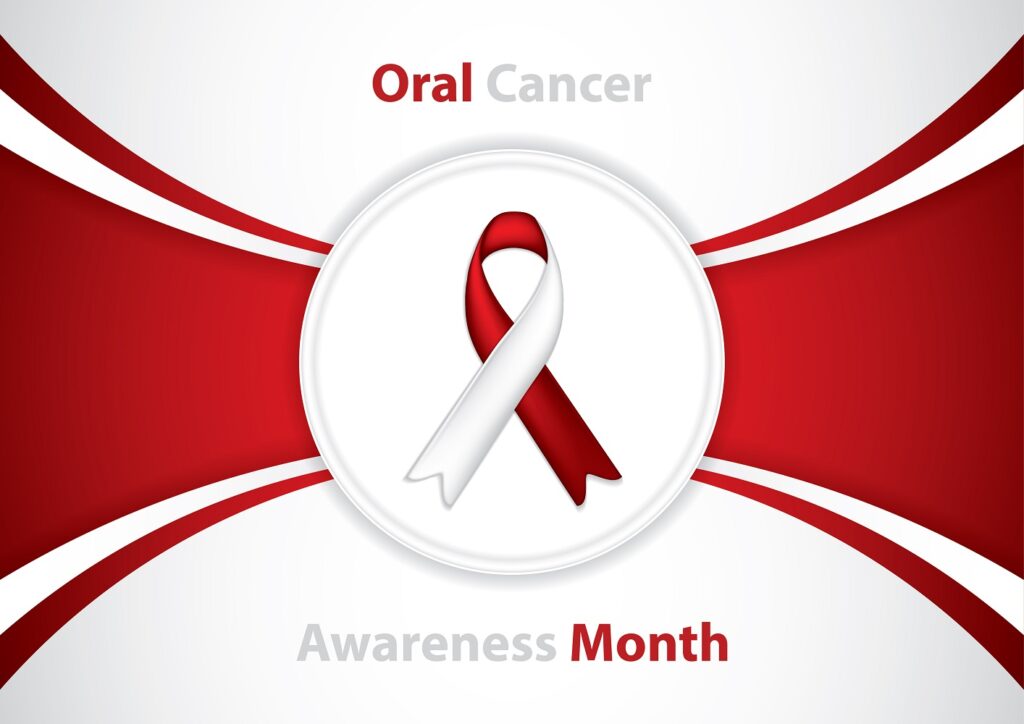
19 Nov Why Early Detection of Oral Cancer is Critical
 In 2020 nearly 53,000 Americans will be diagnosed with oral or oropharyngeal cancer. Oral cancer starts in the mouth and can affect the lips, cheeks, tongue, gums, and roof of the mouth. Oropharyngeal cancer, or throat cancer, starts in the throat just behind the mouth. Often found in later stages, approximately 9,750 people will die from oral cancer and only (57%) will survive it 5 years after diagnosis. Oral cancer affects more people than cervical cancer, Hodgkin’s lymphoma, and laryngeal cancer, yet there is hope. Here’s why early detection of oral cancer is critical.
In 2020 nearly 53,000 Americans will be diagnosed with oral or oropharyngeal cancer. Oral cancer starts in the mouth and can affect the lips, cheeks, tongue, gums, and roof of the mouth. Oropharyngeal cancer, or throat cancer, starts in the throat just behind the mouth. Often found in later stages, approximately 9,750 people will die from oral cancer and only (57%) will survive it 5 years after diagnosis. Oral cancer affects more people than cervical cancer, Hodgkin’s lymphoma, and laryngeal cancer, yet there is hope. Here’s why early detection of oral cancer is critical.
Are You At Risk?
The risk of oral cancer increases significantly for people over age 50, with two-thirds diagnosed being over age 55. Tobacco is the primary cause in people 50+, followed by heavy alcohol use. The combination of the two increases the risk by 15 times, as these substances act synergistically. Men are more likely than women to develop oral cancer due to their greater use of tobacco and alcohol. However, oral cancer also affects younger adults and is on the rise.
Oral cancer has been increasing in adults in their 20s and 30s, with HPV as the primary cause of oral and throat cancer in persons under age 50. White, non-smoking males age 35 to 55 are at risk 4 to 1 over females. UV rays from the sun is another risk factor. Lip cancer is the most common type of oral cancer and affects people who work or spend a lot of time outdoors. So what are the signs of oral cancer?
Signs of Oral Cancer
According to the Mayo Clinic, common signs of mouth cancer include:
- Lip or mouth sores that bleed or don’t heal
- Ulcers that look like canker sores
- Mouth or tongue pain
- Poorly fitting dentures
- Jaw pain or stiffness
- Painful chewing
- Persistent ear pain
- Hoarseness
- Swollen lymph nodes
- A white or reddish patch on the inside of your mouth
- A growth, lump, or thickening of the skin or lining of your mouth
While not necessarily an indication of cancer, contact your dentist if these symptoms persist longer than 2-3 weeks.
Early Detection is Critical to Survival
Since the onset of oral cancer may be painless or mistaken for a toothache or a cold, warning signs are often ignored by patients and discovered only after it has spread to the lymph nodes. Once this has occurred, the prognosis for recovery worsens.
Fortunately, early diagnosis can significantly improve survivability. Lower your risk of oral cancer with a few simple lifestyle changes like eliminating tobacco, decreasing alcohol consumption, and wearing a lip balm with SPF protection, and getting an annual screening with the dentist.
Keeping Your Mouth Healthy
Oral cancer is often noticed first by dental hygienists during routine cleanings. Imperial Dental is a member of the ID For Life™ and OralID™ oral cancer screening program. Painless and non-invasive, OralID™ is a 2-minute exam that helps identify abnormalities not visible to the naked eye. Finding signs of oral cancer early on can increase the 5-year survival rate to 80-90%.
Schedule the OralID™ screening along with your regular dental cleaning. At Imperial Dental Center, we are committed to providing the best oral care to our patients, with a highly trained staff, exceptional customer service, and state-of-the art dental technology.

Dr. Dragana Angelova
We Love to See You Smile

